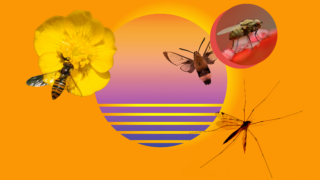A Fishy Stink Heightens Critical Thinking
 Contact: Emily Gersema (213) 361-6730 or gersema@usc.edu
Contact: Emily Gersema (213) 361-6730 or gersema@usc.edu
A nose-wrinkling fishy smell does more than tell humans to keep a safe distance: It makes them better thinkers.
In a study of metaphor and reasoning, researchers found that people exposed to the slightest whiff of spoiling fish are more likely to detect misleading information.
“If I’m distrustful, then I’m thinking, ‘Something’s wrong here.’ And then I have to think more critically and figure out what is wrong,” said Norbert Schwarz, the study’s lead author and director of the USC Dornsife Center for Mind and Society.
Scientists believe the tendency to respond to fishy smells with suspicion is an evolved mechanism that helped humans survive for centuries. “Something smells fishy” is a widely-accepted metaphor, with variants of it appearing in more than 20 languages worldwide.
However, the typical response to the stench of fish — suspicion — has its drawbacks. Prior studies have found our reaction can undermine trust in other people or information.
With this study, Schwarz and researchers David Lee and Eunjung Kim from the University of Michigan found that such mechanisms also can support reason and judgment.
A red herring
Researchers conducted reasoning experiments to test their suspicion. For one, they asked 31 students to complete a questionnaire in a booth that smelled slightly fishy because the researchers had, unbeknownst to the students, sprayed it with some fish oil. Separately, 30 other students completed their questionnaires in a fishy-free booth.
Among the various questions was a red herring that scientists call the “Moses Illusion”: “How many animals of each kind did Moses take on the Ark?”
Repeated tests have shown people fail to notice that the Moses Illusion contains misinformation, even if during an experiment, they are forewarned of a potential distortion. Participants consistently answer “two” to this question, even when they know that Noah, not Moses, built the Ark and ferried pairs of animals to safety.
In this latest study, a spritz of fish oil in one booth appears to have prompted many participants to look beyond the illusion and recognize the misinformation.
In the fishy booth, 13 of 31 students (42 percent) detected something amiss with the Moses question. These skeptics responded that they “can’t say” how many animals Moses had taken.
By contrast, their peers in the non-fishy booth were more trusting: Only five of those 30 students – 17 percent — noticed the distortion.
Follow your nose
In effect, the study confirmed the old adage, “The nose knows.” And knowing can help us raise a stink about misinformation.
Schwarz said he hopes to further explore the “something smells fishy” metaphor and its influence on reasoning.
The smells that trigger suspicion vary from country to country, although in all cases it is generated by rotting food or organic matter, Schwarz said. However, in some countries, the smell of suspicion is not the smell of fish, but could be, for example, a rotten potato.
“We are looking at collaborating with researchers in other countries to learn more about the role of sensory experience in critical thinking,” he said.
Schwarz is a USC provost professor of psychology and marketing at the USC Dornsife College of Letters, Arts and Science and Marshall School of Business. The study was published this month in the Journal of Experimental Social Psychology.



